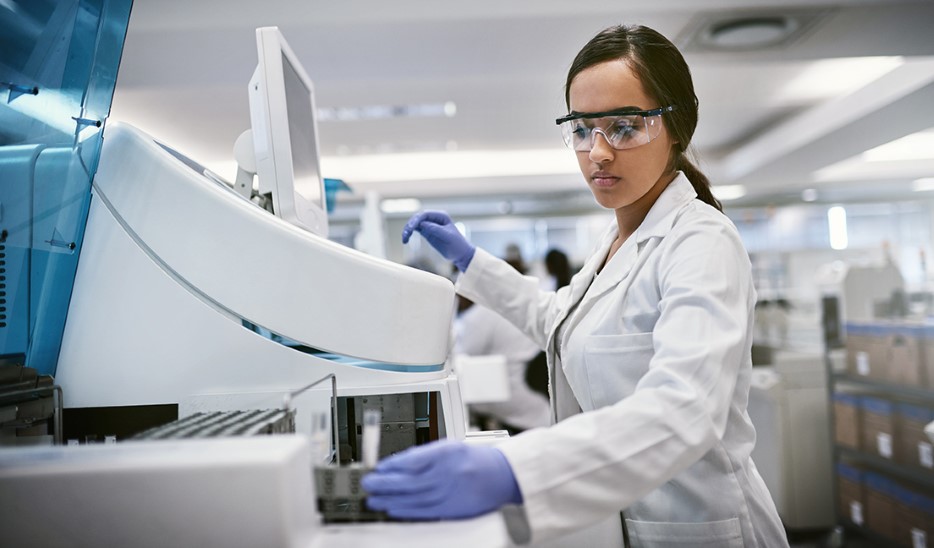The Critical Role of Water Quality In Lab Performance
In the fast-paced hospital setting, physicians and labs technicians expect their technology and systems to work reliably, every time. Clinical Laboratories are critical to giving physicians the information they need to make decisions for patient care - and the consequences of inaccurate results or lab downtime can be the difference between a patient getting a lifesaving treatment in time, or a potential misdiagnosis or delay in treatment.
While it’s important that laboratory diagnostic equipment be regularly checked and maintained, water systems often aren’t top of mind until there’s a system failure. Without the appropriate water quality, laboratory tests can generate erroneous results, skewed data or worse, the analyzers can experience a complete shutdown. When this happens, the downtime to repair the water system and re-test samples can cause a backlog, creating significant problems in an environment where operation must be efficient.
Maintaining Water Quality In The Lab
The purity of water used in clinical laboratories is essential. While the domestic consumer considers tap water to be “pure,” clinical laboratory scientists regard it as grossly contaminated for their applications.
As diagnostic tests have become more sophisticated and sensitive, the water purity standards have become even more important. High purity water is required at virtually every stage of operation within automated clinical analyzers, therefore it is imperative that this water is low in particulate, ionic, organic, and bacterial impurities which ensures1:
- Minimal build-up of bacteria in internal reservoirs
- Minimal carry-over and contamination in cuvette and sample probe washing
- Increased reagent stability
- Greater accuracy and precision in pipetting of samples and reagents
- Greater accuracy in photometric readings
Since these impurities can directly and indirectly impact analyzer performance, water in clinical laboratory applications is subject to meeting various standards, specifically those set by the CLSI (Clinical Laboratory Standards Institute).
Minimizing Downtime With Proactive Maintenance
Not unlike any other machine or piece of equipment, water purification systems require regular maintenance to ensure they continue to operate correctly and efficiently. This includes periodic filter changes, wear-and-tear component replacement, sanitization, and software updates. It also includes documenting system performance for trending purposes, as well for process verification for accreditation agencies. However, having solutions in place to handle maintenance for water systems has historically been an afterthought. In the past, many hospitals would install water systems and leave maintenance up to their in-house staff. In many cases, the internal staff are often not experts on water systems and or are simply too busy, and without the right training or frequency of monitoring and maintenance, this approach increases the risk of system downtime.
To minimize downtime, water systems should be maintained regularly by qualified water technicians. A proactive maintenance plan with qualified service technicians will help ensure that the water system won’t fail in an environment that calls for 24/7 operation.
Maximizing Efficiency With Reliable Water Management
Solutions exist today for hospitals to outsource their water purification needs entirely to water management partners. By doing so, hospitals can ensure they achieve the water quality, quantity, and uptime they need without having to allocate internal resources. Through these offerings, a third party that is an expert in water purification regularly monitors the water system, in some instances remotely, and routinely conducts preventative maintenance and repairs to ensure the system is always producing the best results. These offerings often come with a process guarantee (promised “quality” and “quantity”) and include system replacement parts and labor with no surprise “out of pocket” expenses.
When comparing the total cost of ownership of obtaining the quality and quantity of purified water the laboratory needs, this arrangement often proves less costly than individually managing system maintenance and repairs or suffering downtime. In some cases, the water purification equipment can even be acquired at no cost, thus allowing the laboratory to obtain the water quality they require on a “per gallon basis,” thus utilizing their operational budget versus having to request capital funding for new water purification equipment.
Given the critical nature of testing done within hospital clinical labs, and the increasingly stringent requirements around water quality, it is more important than ever before that hospitals have a reliable water system in place. With a third-party provider monitoring and maintaining water systems at a lower total cost of ownership, hospital workers can spend more time and energy focusing on their core competencies and most importantly – patient care – knowing their water needs are taken care of.
References:
Author: Jeffrey Holland, BSCEM, MBA, Director of Health Science, Evoqua Water Technologies
- 1. ELGA LabWater, The Pure Clinical LabWater Guide (Water for Clinical Laboratories, 2006).

